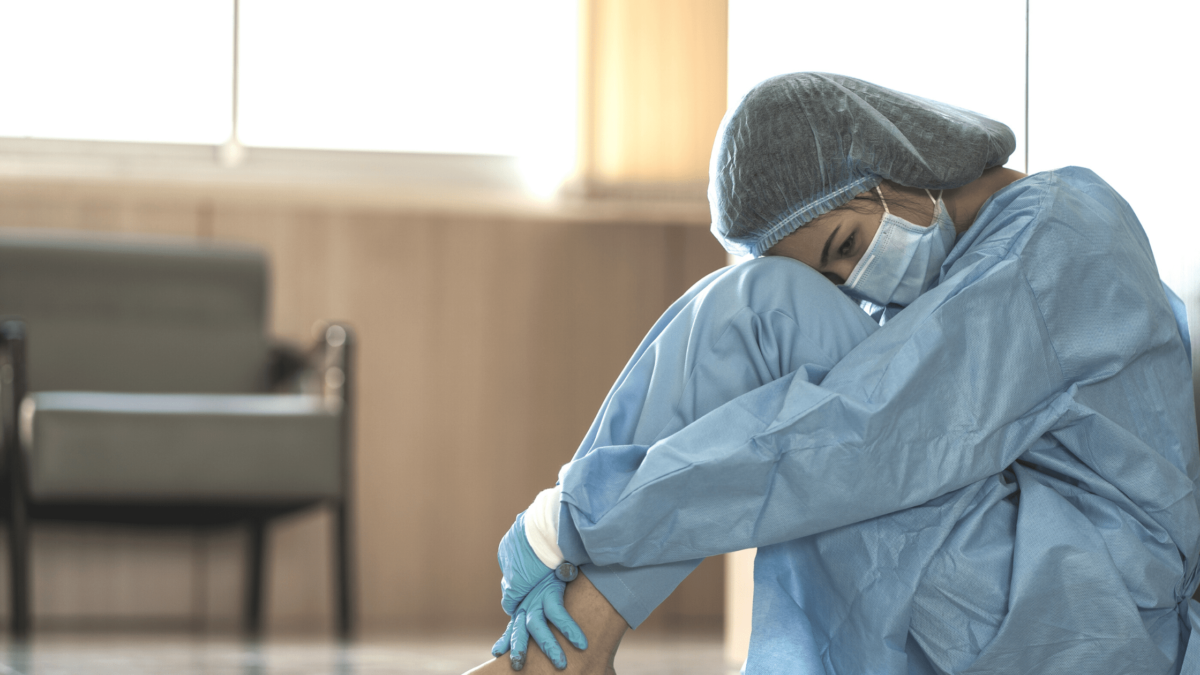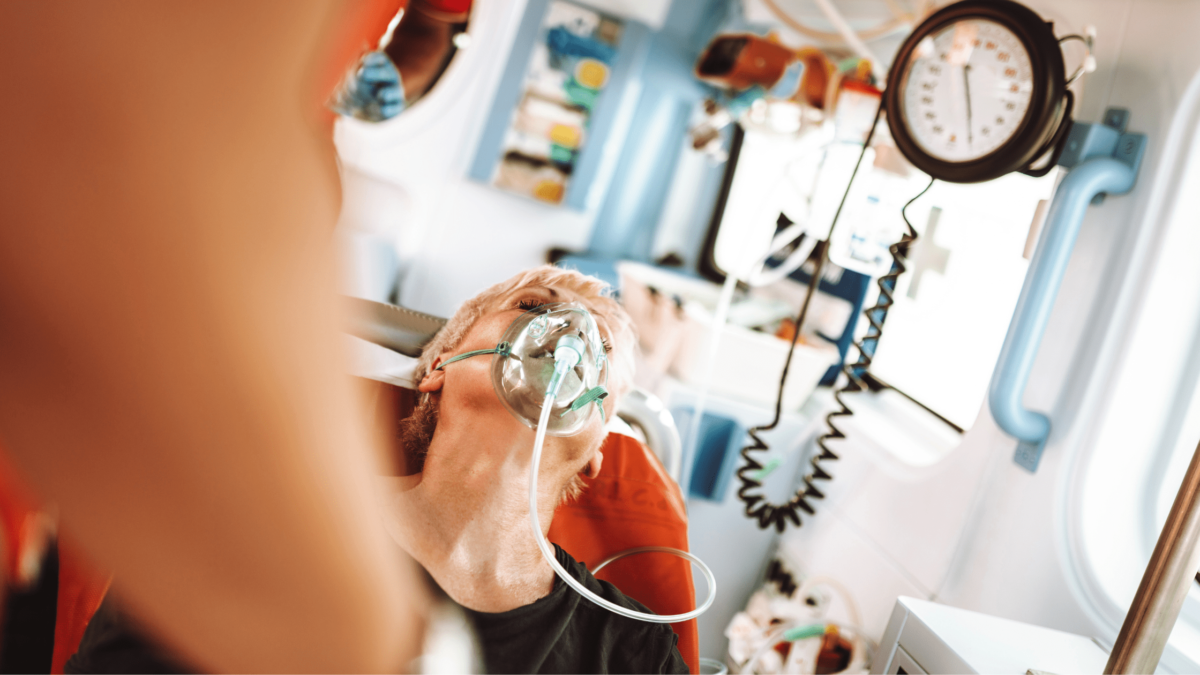Physician Health & Wellness in the Era of COVID-19: Mental Health Effects of the COVID-19 Pandemic on Physicians

For most physicians, the practice of medicine is as much a calling as it is a profession. The calling of this practice is rooted in the character of the physician whose daily decisions and patient interactions are the outcomes of a commitment to values that supersede one’s own self-interest. However, though medical training is highly rigorous and most doctors are exposed to the inevitability of patient death in medical school, the unprecedented scale of severe infection and death associated with COVID-19 has taken a toll on doctors providing direct patient care.
In a study performed by Feingold et al in October 2020, “Psychological Impact of the COVID-19 Pandemic on Frontline Health Care Workers During the Pandemic Surge in New York City,” the authors reported on psychological impact on frontline health care workers (FHCWs) during the major surge in COVID-19 cases from March to May 2020 that brought as yet unimaginable levels of suffering and death to New York City hospitals. At that time, New York City was the epicenter of COVID-19 cases in the US. This would be followed by an even bigger surge in December to January 2021. The author’s findings were that 39% of FLHWs suffered met criteria for symptoms of COVID-19-related PTSD, MDD, or GAD. The study did not make formal diagnoses as the measurements used were screening instruments: PCL-4-5 for PTSD, PHQ-8 for MDD and the GAD-7 for GAD. These are reliable instruments that are used widely for screening in clinical practice. Of the 39% of FLHWs that screened positive, 23.3% screened positively for PTSD symptoms, 26.6% for MDD symptoms, and 25.0% for GAD symptoms. Multivariable analyses revealed that past-year burnout was associated with the highest risk of developing symptoms for COVID-19-related PTSD (odds ratio [OR] 2.10), MDD (OR 2.83), and GAD (OR 2.68). These scores are significantly higher than those found in the general population.
Higher perceived support from hospital leadership was associated with a lowest risk of all outcomes [PTSD (OR 0.75), MDD (OR 0.72), and GAD (OR 0.76)].
The authors compare results with other studies of the psychological impact of pandemics. They hypothesized and found that their study numbers were in agreement with a study performed in Wuhan during the peak surge of COVID-19 onset, and higher than other less intense pandemic events suggesting a dose-dependent response on the percentage of cases within the exposed sample. This also suggests a high level of validity in the that higher levels of PTSD, MDD and GAD are an expected result.

Physician Suicide
The lifetime risk of completed suicide among patients with untreated depressive disorder is nearly 20%. Each year, 300 to 400 doctors in the U.S. take their own life, says the American Federation for Suicide Prevention. One per day. That’s more than double the rising rate in the general population. In 2018, the suicide rate among males was 3.7 times higher (22.8 per 100,000) than among females (6.2 per 100,000). Even then, the number is probably an undercount. Among specialties, anesthesiologist, psychiatrist, general practitioners and general surgeons are at greater risk.
A review by Banerjee in July 2020, reported that risk factors for suicidality align strongly with the impact of the COVOD-19 pandemic so as to create a dual vulnerability. Suicide remains among the top ten causes of death globally. A Lancet review in June 2020 stated “Suicide is likely to become a more pressing concern as the pandemic spreads and has longer-term effects on the general population, the economy, and vulnerable groups.”
THE STORY OF LORNA BREEN, M.D., EMERGENCY MEDICINE, NEW YORK CITY
This story is a tragic one which, though dramatic, is not as unique as it may seem. Born in Charlottesville, Virginia, and raised by caring supportive parents, she was closest to her sister Lorna, 22 months her younger. Even during their adult years they talked daily. She graduated from Wyoming Seminary in 1988 and received a master's degree at Cornell University before attending Medical College of Virginia and completing double residency at Long Island Jewish Medical Center Internal Medicine and Emergency Medicine. At the time of her death she was medical director of the emergency department at New York-Presbyterian Allen Hospital. She was a driven clinician but did make time for herself and for friends. An avid snow-skier, snow-boarder and half-marathoner, she taught herself to play the cello and took up salsa dancing as some of her avocational activities.
At a time when the rest of the medical community was watching COVID-19 spread across the globe, she stated that she believed COVID-19 was going to catch hospitals in New York unprepared.
In February 2020 she took a ski trip with her sister to Big Sky, Montana, and returned to a pandemic already raging in New York. Dr. Breen was confronted by the horror of medicine on the front line of the pandemic. Nobody could have been prepared for the amount of severe illness and death that she would be confronted with. Emergency doctors are particularly vulnerable to post-traumatic stress — while working in a profession that encourages toughing it out. The coronavirus had presented unusual mental health challenges for emergency physicians throughout New York, the epicenter of the crisis in the United States.
“To her friends and family, she had described an onslaught of patients who were dying before they could even be taken out of ambulances.”

Doctors are accustomed to responding to all sorts of grisly tragedies. But rarely do they have to worry about getting sick themselves, or about infecting their colleagues, friends and family members. Then, exposed at work, Dr. Breen contracted COVID-19 herself. It was thought a mild case. Ten days later she was back to work after isolating for a week and a half.
It did not take long for the structure Dr. Breen had once so deliberately constructed began to completely cave in. She started working long days that bled together one into another, some required overseeing EDs at both Allen and the main Columbia medical campus. There could be no balance, no release, no pragmatic steps to escape the horrible impact of the pandemic. There was only the sick and the unfathomable: bodies every day. Ultimately, during the worst of the crisis, almost a quarter of the people admitted to Allen for COVID-19 would die.
On April 4, Dr. Breen worked another 15 hours. A colleague texted her: “Prayers to u Lorna. Stay strong.” She replied, “Hardest time of my life. Am trying to focus.” The following day, a colleague noted she appeared confused and overwhelmed. Dr. Breen wrote a message to her Bible study group. “I’m drowning right now — May be AWOL for a while,” she typed. She soon stopped replying to friends’ messages altogether.
Dr. Breen called her sister on April 9. She sounded so unlike herself that Ms. Feist wondered if the virus had altered her brain. Ms. Feist called Dr. Angela Mills, chief of emergency medicine, Dr. Breen’s supervisor. A psychiatrist friend of Dr. Breen’s soon arrived to see her. After spending some time, the friend called Ms. Feist and said her sister needed to be hospitalized.
After 11 days in an inpatient psychiatric ward, she appeared to rally, and chatted on the phone with a close friend who was relieved to hear her voice. She seemed strong and was soon discharged to her mother in Charlottesville. She appeared more herself, making jokes. She mentioned returning to her M.B.A. studies. She started going for long runs. Family members her talking about getting back to New York.
But on Sunday, April 26, 2020, Dr. Breen took her own life.
In the days before her death, the Dr. Breen recounted to family her experience of traumatic scenes she'd witnessed, seeing so much death and suffering, patient dying before they could be taken from ambulances. According to her father:
"She was truly in the trenches of the frontline. She tried to do her job, and it killed her.”
To learn more about Dr. Lorna Breen and her legacy, visit drlornabreen.org.
Would you like to read more blogs in this article series?
Click the links below.
Physician Health & Wellness in the Era of COVID-19: “If not now, when?”
Physician Health & Wellness in the Era of COVID-19: Better Days Ahead – the Rollout of Vaccines
